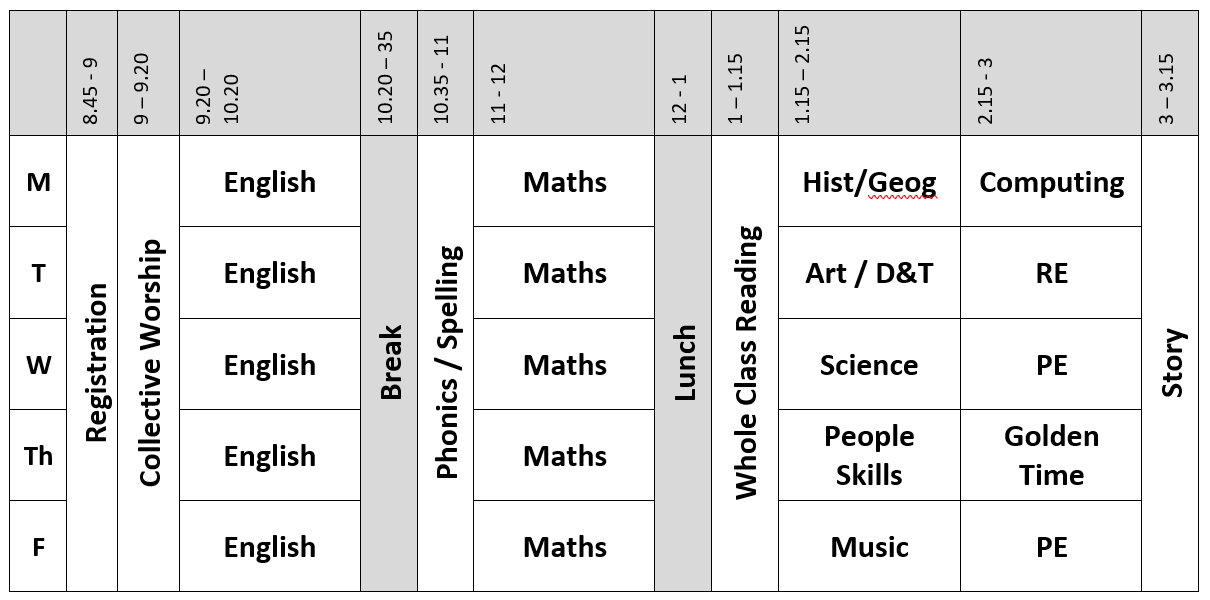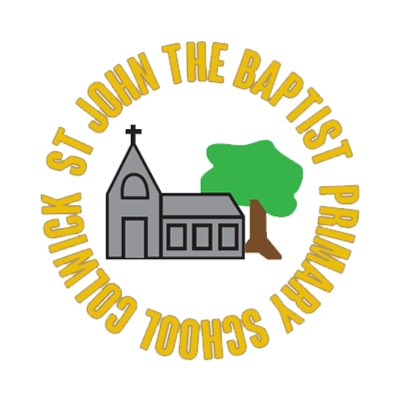Class 2
Welcome Back!
It sounds like you all had a wonderful Easter and the children are ready and raring to go for the Summer Term. There are a couple of changes this term - firstly, Mrs Whitehouse is taking over teaching on Fridays because Mr Mazzotti is now teaching with Miss Merik in Class 4. The children know Mrs Whitehouse well from last year, and she is very excited to be teaching them all again! The other change is our PE day has moved from a Monday to a Wednesday - we will still have PE as usual on a Friday. Our topic this term is Magnificent Monarchs! We will be learning about significant British kings and queens. In English, we have already started working on our biography of Queen Elizabeth II.
On this webpage you will find all the information you need for your learning. I will update it regularly. Keep an eye out on Thursdays for new photos in the Gallery.
Curriculum - Summer Term 2024
History - Magnificent Monarchs
In the Magnificent Monarchs project, your child will learn about English and British monarchs from AD 871 to the present day and consider how the power of the monarchy has changed over time. They will study six significant sovereigns; Alfred the Great, William the Conqueror, Henry VIII, Elizabeth I, Queen Victoria and Elizabeth II. Finally, they will choose which of the sovereigns that they have studied is the most significant.
Science - Animal Survival
In the Animal Survival project, your child will revisit prior learning about habitats. They will learn about invertebrates and their characteristics. They will learn about microhabitats and go outside to identify and observe living things in various microhabitats. They will identify and research what an observed animal needs to survive and will construct simple food chains, learning the terms ‘producer’ and ‘consumer.' They will explore how humans can harm and help animals’ habitats and visit the school grounds to look at ways habitats are already being supported and potential improvements. Children will learn about the offspring of different animal groups, matching parents to their offspring. They will order the stages in animals’ life cycles and investigate the life cycle of an insect, observing it over time. They will revisit learning about the four seasons and explore how animals’ behaviour changes across the seasons and how this links to their life cycles. Children will plan and make habitat improvements within the school grounds, evaluating the success of their habitat improvements by collecting first-hand data.
RE - Gospel
In this unit, the children will learn to tell stories from the Bible and recognise a link with a concept of ‘Gospel’ or good news. They will be able to give clear, simple accounts of what Bible texts (such as the story of Matthew the tax collector) means to Christians. The children will recognise that Jesus gives instructions to people about how to behave. They will learn ways in which Christians follow the teachings studied about forgiveness and peace and bringing good news to the friendless. The children will also learn how Christians put these beliefs into practice in the Church community and their own lives (for example: charity, confession). The children will have opportunity to think, talk and ask questions about whether Jesus’ ‘good news’ is only good news for Christians, or if there are things for anyone to learn, exploring different ideas.
RE - Religious Stories
In this unit, the children will be introduced to some stories from the sacred texts and traditions of Christianity, Hinduism, Judaism, Buddhism, Islam and Sikhism. In finding out about stories from the Hindu or Buddhist traditions, or about the Torah, Bible, the Guru Granth Sahib, Dhammapada or the Qur’an, children will discover more about religion and how people from different faiths might use their sacred stories. There are also opportunities for pupils to think about books and stories that matter to them. This unit will contribute to children’s understanding of the world and to their appreciation of diversity.
Art - Portraits and Poses
In this project your child will learn about portraiture. They will analyse the portraits of Tudor monarchs and compare Tudor portraits and selfies today. They will use photo editing software to create royal portraits.
D&T - Cut, Stitch and Join
In this project your child will learn about fabric home products and the significant British brand Cath Kidston. They will learn about sewing patterns and using a running stitch and embellishments before making a sewn bag tag.
D&T - Push and Pull
In this project your child will learn about three types of mechanism: sliders, levers and linkages. They will make models of each mechanism before designing and making a greetings card with a moving part.
People Skills - Safety and the Changing Body
Safety and the Changing Body:
- To know the PANTS rule.
- To know that I should tell an adult if I see something that makes me uncomfortable online.
- To understand the difference between secrets and surprises.
- To know the rules for crossing the road safely.
- To know that medicine can help us when we are ill.
- To understand that we should only take medicines when a trusted adult says we can.
- To know the names of parts of my body, including private parts.
Music - Friendship Song / Reflect, Rewind and Replay
PE - Athletics / Net Wall / Striking and Fielding / Fitness
Computing - Questioning / Making Music / Presenting Ideas
Staffing
Mrs Haythorn will be teaching Monday to Thursday with Mrs Whitehouse teaching on a Friday. We are also lucky enough to have Mrs Stevenson working with us on Monday - Wednesday mornings.
Behaviour
This will follow the usual "Good to be Green" system which you will be used to. There will be the usual gold cards for excellent work and platinum cards for exceptional work and behaviour. We will also be using Dojo points (an online reward point system).
Routines
This year with the change in timings of the school day we have swapped the timetable around slightly. We are now having Collective Worship at the start of the day and then ending the day with story time. PE will always be on Mondays and Fridays - please see the timetable below. We will always change reading books and I will check organisers on a Monday morning. Please ensure that you have listened to your child read at least four times. If there are children that struggle with their reading at home then I run a Reading Club on Monday playtime to support with this.

Family Week
As part of our People Skills curriculum, we teach children in each year group a comprehensive and inclusive Relationship, Sex and Health Education Programme, which complements our Christian values. The focus of this learning will take place during Family Week (TBC), where children in Year 2 will be taught the following, in line with statutory guidance:

Please see the link below to our Phonics information page.
